Couple driving from London to Singapore in 12-car convoy: These are 'stories I can tell my grandchildren'
This August, Jeremy See and his wife Sharleen’s Singapore-registered car will begin a 100-day trip across 23 countries with a S$110,000 budget.
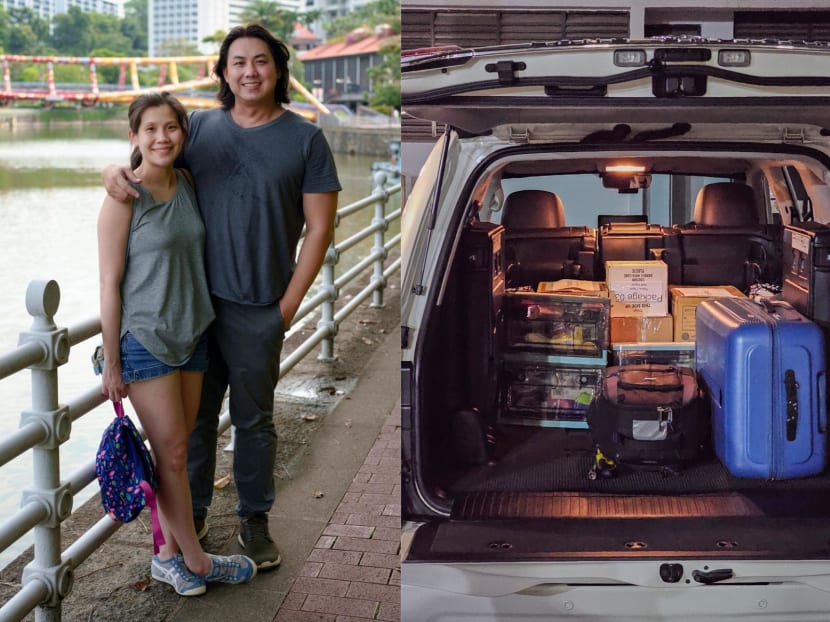
Couple Jeremy See and Sharleen Lim will be going on an adventure of a lifetime: A roadtrip from London to Singapore in 100 days covering 23 countries. (Photo: Jeremy See)
As the season of revenge travel unfolds, Jeremy See and his wife Sharleen Lim are eagerly joining the ranks of those whose pandemic-born holiday dreams are now becoming a reality. Except their upcoming road trip has been in the works for three years.
In August, they will embark on a journey to London, where their Singapore-registered 2019 Toyota Land Cruiser 4.6L V8 was transported a month prior. Over the course of 100 days, they are prepared to cover 25,000km, passing through 23 countries as they make their way back to Singapore.
Their route includes the following countries: UK, France, Belgium, Germany, Austria, Slovakia, Hungary, Croatia, Bosnia, Montenegro, Albania, Greece, Turkiye, Iran, Turkmenistan, Uzbekistan, Kyrgyzstan, Kazakhstan, China, Laos, Thailand, Malaysia, and finally, Singapore. With a budget of S$110,000 for two people, it's no wonder that none of their five children will be accompanying them.
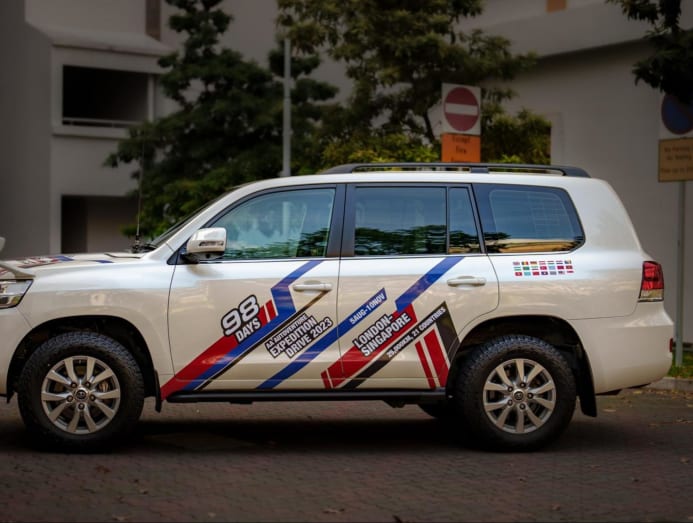
Instead, they will be joined by 11 other couples in separate vehicles, including a Nissan GTR and a Mercedes S-Class. The trip has been organised by the Automobile Association of Singapore (AAS), bringing together individuals who share a common interest. When asked to describe the demographic of the group, See offered: Old, wealthy, and retired.
“The average age, if you exclude us, is around the late sixties to seventies. We have a grandfather (in our midst) who’s doing this trip in a supercar. He has driven to Everest base camp through Russia before,” the 48-year-old retired piano teacher said.
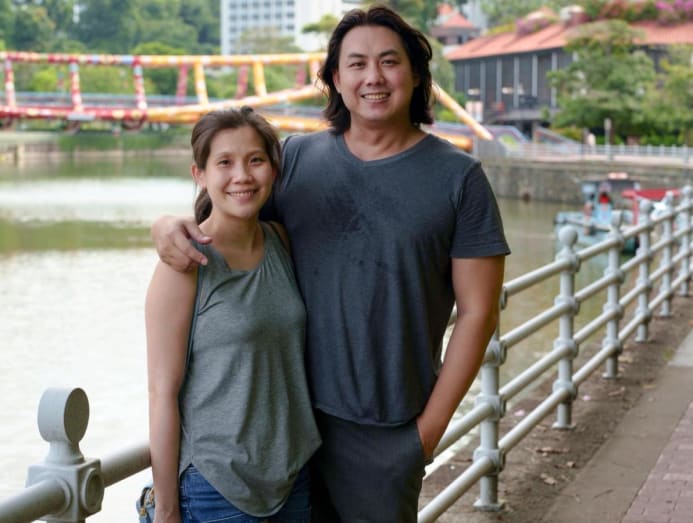
There’s yet another thread that binds the married couples among them – all of them have “very strong matrimonial bonds,” said See. It’s not surprising; a trip of this scale is bound to put the mettle of one’s relationship to the test.
“A lot of married couples do not see each other that many hours a day because they’re off to work. But when you’re on a long road trip like this, you have to tolerate each other 24/7. There’s the stress of driving, loading and unloading your luggage, and finding your way around,” he said.
AN OBSESSION WITH DRIVING
Speaking of long road trips, why add to the hassle by shipping your own car to the UK when you could simply rent one?
But it seems posing this question to this particular group of travellers is akin to asking a vinyl collector why they don’t just stream music on Spotify instead. The romance, it appears, lies in photographing a Singapore-registered vehicle against the backdrop of foreign road signs and landscapes.
We have a very strong passport and if we’re not taking advantage of it to go to places less travelled, especially while we can, it’s quite a waste.
“To me, these are stories I can tell my grandchildren. It shows a life well-lived that you don’t have to always follow the norms. You can take the path less travelled and experience a rich life.”
See shared three key considerations to ponder, aside from the obvious financial aspect, before embarking on such an adventure.
Firstly, one’s love for driving must border on obsession. He shared how he would embark on a nine-hour journey to Hat Yai solely for a meal, without spending a night. For his family of seven, road trips are the quintessential holiday experience. This mode of travel offers something that bustling capital cities don’t: the feeling of being far from home.
“The minute you land in places like Tokyo or Seoul, you hear Singlish left and right in stereo. Being on the road allows us to be away from main airports and train stations where tourists usually are.”
As long drives to Malaysia and Thailand become a common occurrence, he quickly realised that the open roads of Southeast Asia, with their predictable climate and unchanging foliage, started to lose their charm. A cross-continental adventure was always in the cards.
The second consideration is one’s health. Driving hundreds of kilometres demands physical stamina and mental sharpness, and navigating through countries means adapting to both left- and right- hand drive. In fact, 80 per cent of the destinations on the couple’s itinerary will require him to drive on the left side of the road.
These are stories I can tell my grandchildren. You can take the path less travelled and experience a rich life.
Last but certainly not least, one must be willing to take a significant amount of time away from their life.
“Some people may have the money and health to do it, but they may be so entrenched in their lives here that it’s hard to pull away for 100 days. If they wait till they’ve retired, they may find the high altitudes, long drives, and differences in temperatures gruelling.”
During a road trip of this magnitude, quality sleep becomes essential. To ensure alertness, See has packed two rather unconventional items: Shower steamers, which infuse their accommodations with a familiar scent, and their own beloved pillows.
“The pillow is a big determinant of whether you sleep well. I can fall asleep anywhere but I can fall asleep much more quickly and sleep more deeply when I have my own pillow and the place smells like home.”
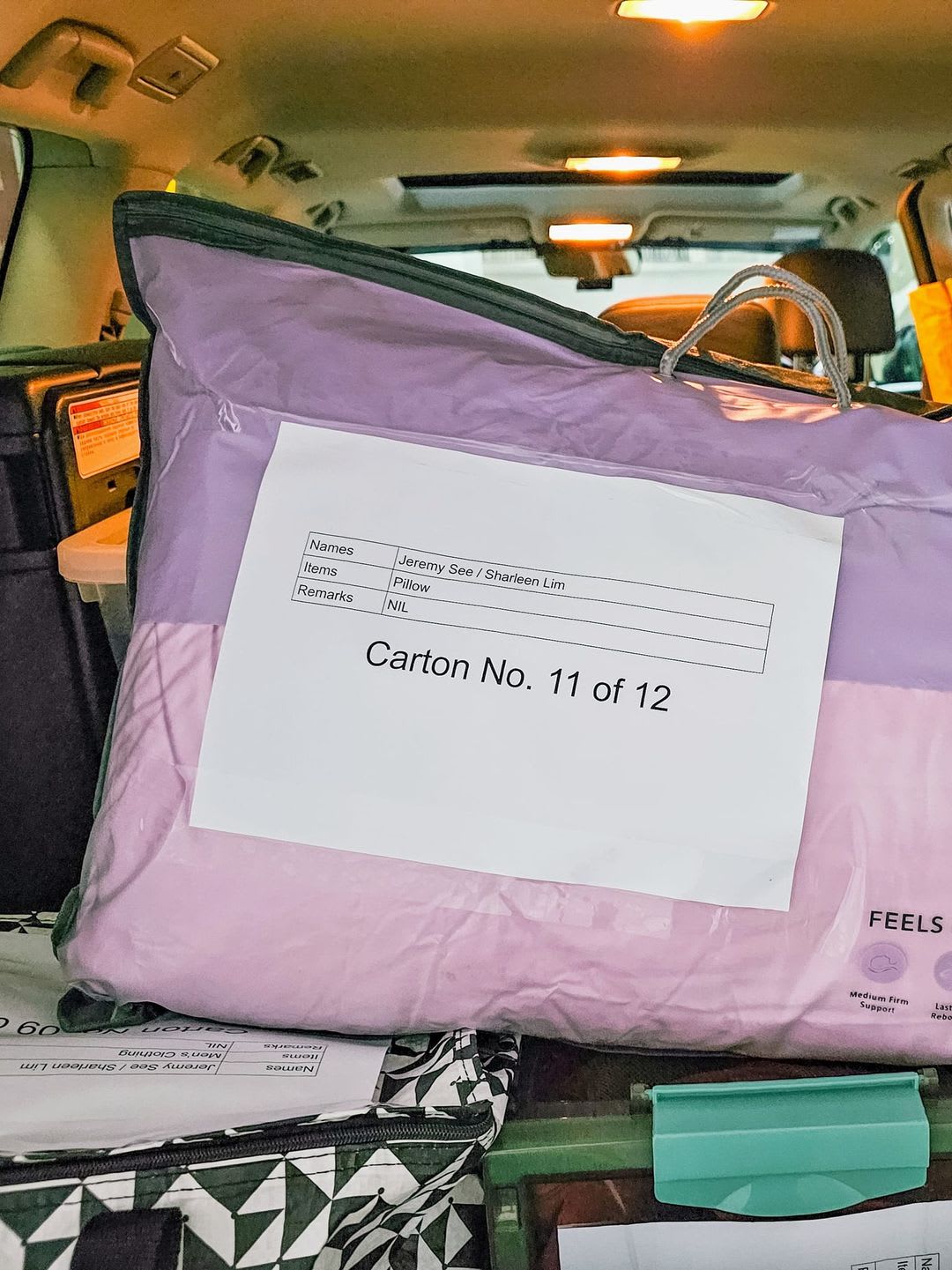
“WHY ARE YOU PAYING TO ENTER RISKY AREAS?”
In addition to spare car parts and extra eyeglasses, the couple has packed an extensive stash of packaged foods and beverages as part of their contingency plan. Even though the AAS has issued them the Carnet de Passage, a document that grants them passage across international borders in their vehicle without customs charges, they are prepared to get stranded at the borders.
“Borders are always tricky. You have to follow their operating hours and you cannot expect the same level of efficiency in Singapore. If there are long queues, we may be stuck there for up to 12 hours.”
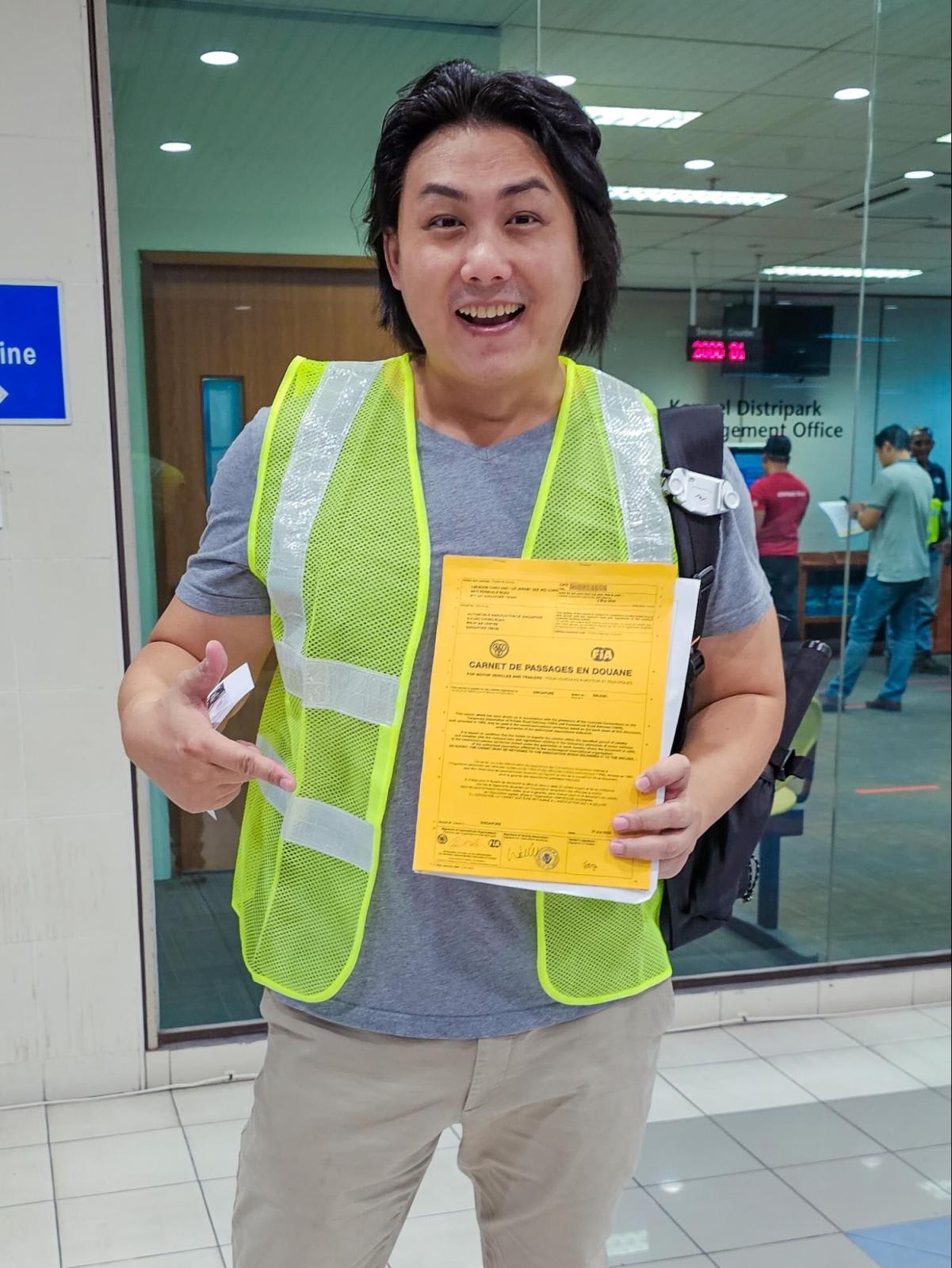
This looming concern becomes even more valid in the countries strewn across Eastern Europe and Central Asia, where things may get unpredictable. When sharing their ambitious itinerary with others, the couple encountered a common refrain.
“This is the unanimous thing that everybody says: Siao ah? Why are you paying to enter risky areas and suffer?” said See.
Yet, he remains resolute in his conviction. The couple has done their research, enlisted local experts, and acquired an awareness of areas to steer clear of.
“It’s not the entire country. The people in these countries are very peace-loving. They’re normal folks like you and me, trying to live their lives and provide for their families. It’s just politics that is creating these conflicts, which has nothing to do with them.”
In his view, sensationalised news stories do not accurately depict the everyday reality of its people. That these countries are invariably dicey is a misconception he wishes to dispel by sharing his adventure on social media platforms.
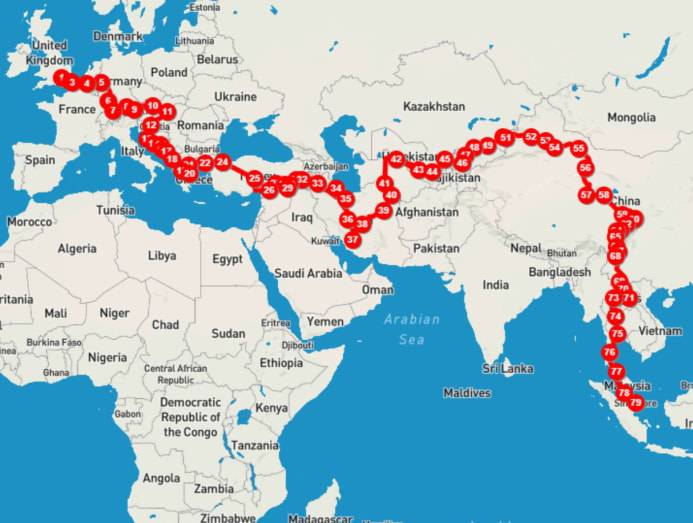
Notably, they will be spending 12 days in Iran, a decision that comes with its own set of sacrifices and additional efforts as it’s a US-sanctioned country; and three weeks in China – an equally tricky and the lengthiest leg of their expedition.
“You can’t just waltz into China with a car. We have to drive to the border and take the driving test on the spot. Hopefully we pass. We’d have to be escorted 24/7 by a guide who will also live with us.”
I got a glimpse of a 600-page PDF document on his phone, which meticulously outlines every aspect of their itinerary, including pre-approved accommodations and recommended dining establishments.
Everything in life is a risk. Just driving every day is a risk. Even if you’re not going on this trip, you’re still getting on a plane.
“It’s not for dissemination. The rest of the people will kill me because they did a lot of work to put all these together,” he joked.
Despite the uncertainties involved in this trip and the extensive planning it requires, the couple has never had a second thought. To them, the ability to make it happen is a testament to the privileges enjoyed by Singaporeans.
“We have a very strong passport and if we’re not taking advantage of it to go to places less travelled, especially while we can, it’s quite a waste.”
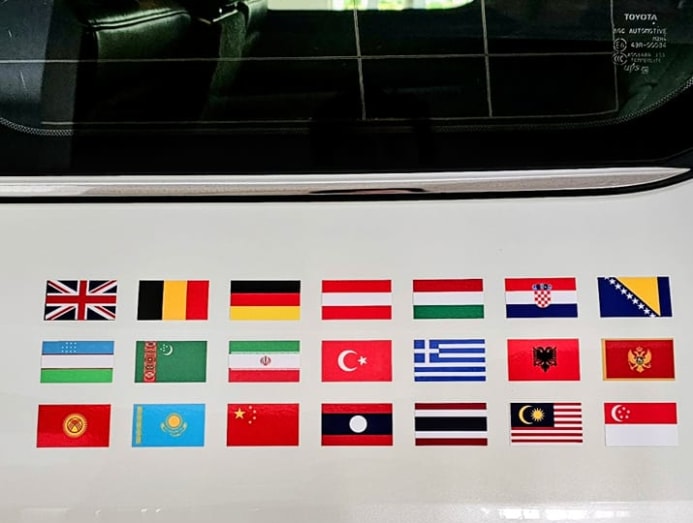
BOLD OR RECKLESS?
Since announcing their trip on Facebook, the couple has faced criticism for being "irresponsible" to their children, particularly as their 6-year-old daughter's Primary 1 registration coincides with their journey.
“They ask: Why’re you not the kiasu parent? Why aren’t you doing all the things needed to get her into her dream school? Instead, during the registration period, you are going on this trip,” Jeremy recounted.
Such concerns ran off him like water off a duck’s back; he plans to handle his registration online while in Germany without much ado. Besides, his five children will be entrusted to their grandparents, who have recently retired and see this as an opportunity to play a more active role in their children’s upbringing.
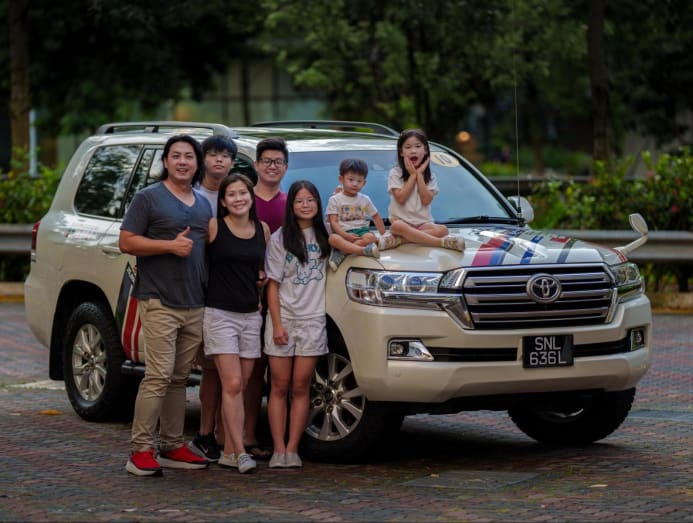
That being said, I suspect the true concern behind these unsolicited remarks is less about the couple’s temporary absence and more about the perceived safety risks. The underlying question being: What would happen to your kids should something tragic happen?
“Everything in life is a risk. Just driving every day is a risk. Even if you’re not going on this trip, you’re still getting on a plane. We’ve taken the steps to minimise it. It’s well-organised. We’re well-insured. We will not purposely expose ourselves to high risk and danger.”
As our conversation takes a slight detour, Jeremy shares the story of Tim Slessor, a British adventurer who drove from London to Singapore in 1955 at the age of 23. Remarkably, at the age of 87 in 2019, he repeated the same journey in reverse, using the same vehicle.
“It’s a very old car. There’s no air-conditioning and you’re exposed to elements. People have done it 50 years ago with no GPS and no internet. Just paper maps. If he could do it, there’s no reason why we can’t do it.”









